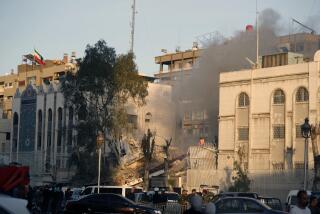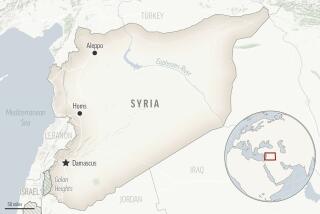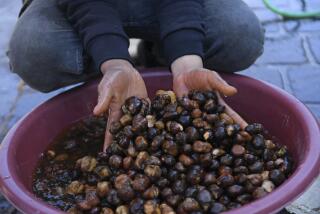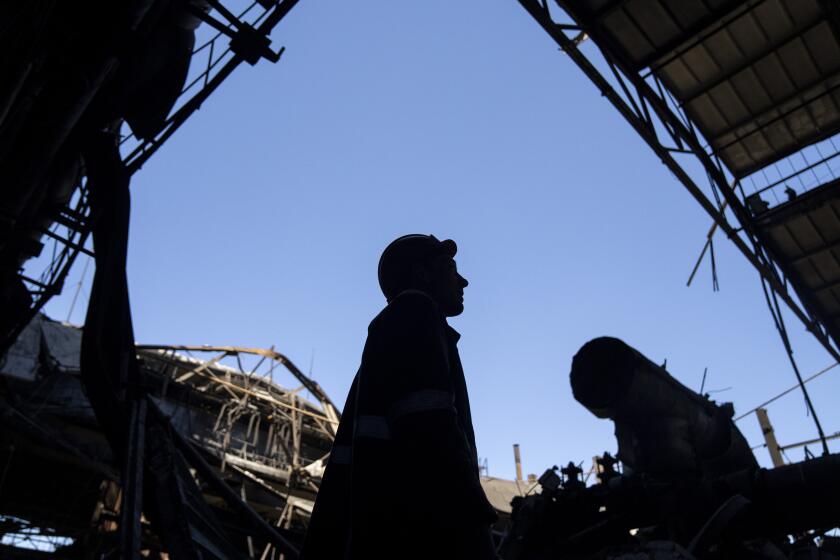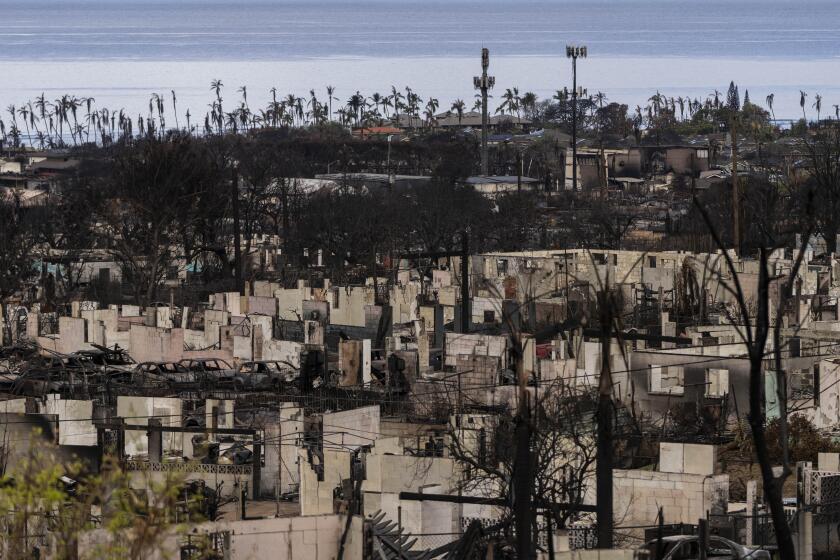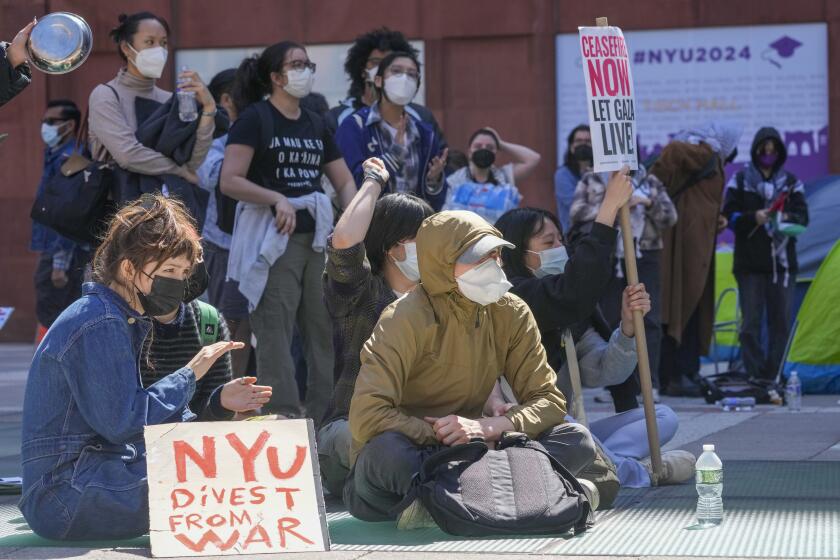Syrian townspeople describe government shelling
ANTAKYA, Turkey — Residents of a Syrian town that was the site of a disputed massacre told United Nations investigators that Syrian forces first shelled the community and then occupied it, apparently executing suspected rebels after checking their identifications, the U.N. said Sunday.
The new version of events last week in Treimseh directly contradicts the account by Syrian authorities, who say no heavy weapons were used and that almost all the victims were insurgents killed while attacking government forces.
But Sunday’s report from the U.N. monitoring team in Syria also does not substantiate opposition accounts that as many as 200 people were killed in Treimseh, including women and children. The U.N. said it was still unclear how many people lost their lives. Nor did the U.N. affirm opposition allegations that tanks and attack helicopters assaulted the town.
Syrian authorities put the death toll in Treimseh at 39 — two civilians and 37 “terrorists,” the customary government term for armed rebels.
The latest disputed massacre has become a point of international debate at a crucial juncture in diplomatic efforts meant to bring peace to Syria, where insurgents are battling to topple the government of President Bashar Assad.
On Sunday, the Geneva-based International Committee of the Red Cross declared that it now views the raging conflict in Syria as a civil war, a designation that could have implications for rules of engagement and any future human rights prosecutions.
Both sides in the conflict have rejected the civil war label, with its implication of deep divisions among Syrians. The government says it is fighting a foreign-backed terrorist conspiracy. Rebels say they are battling to overthrow a criminal regime that has little popular support.
The U.N. this week is expected to debate several proposed Syria actions, including a U.S.-backed proposal that could lead to sanctions against Assad’s government.
U.N. officials, including special envoy Kofi Annan, have condemned the Syrian government for shelling Treimseh in violation of a U.N.-brokered peace plan.
On Monday, Annan, who is also the Arab League’s special envoy for Syria, is scheduled to visit Russia, Syria’s staunch ally. Some reports suggest that Annan would attempt to convince Moscow that it was time to back away from Assad.
Russia has long resisted demands from the United States and its allies that Assad step down to make way for a transitional government.
On Sunday, Syrian Foreign Ministry spokesman Jihad Makdissi told reporters in Damascus that what happened in Treimseh “was not a massacre but a military operation … between the army and armed terrorist groups that don’t believe in dialogue” or a political solution, according to the state-run news service.
Syrian forces employed only personnel carriers and light arms, Makdissi said. Five buildings were damaged and terrorists had been occupying those structures, he said.
But the U.N. monitors who entered Treimseh on Saturday and Sunday said they saw at least 50 burned or destroyed houses. “Pools of blood and brain matter were observed in a number of homes,” the U.N. said.
Accounts from 27 villagers, the U.N. said, told a “consistent” story: Government shelling of Treimseh began before sunrise, followed by military ground operations. Syrian forces searched homes, demanded identification from men and apparently executed suspected military defectors and insurgents, residents told the U.N. team.
“The army was conducting house-to-house searches asking for men and their ID cards,” the U.N. observer mission in Syria said in a statement. Villagers “alleged that after checking their identification, numerous were killed. Other men were taken out of the village.”
The fate of those detained and taken away was unclear.
Among those killed in Treimseh, the U.N. said, were a rebel leader who was shot dead, and a doctor and his children killed when a mortar shell hit their home.
Meanwhile, opposition groups reported heavy fighting Sunday in several neighborhoods of Damascus, including the Tadamun district, which was reportedly hit by government rocket fire. There was no immediate word on casualties and the opposition accounts could not be independently verified.
The capital has been spared much of the violence that has swept across Syria since the rebellion erupted 16 months ago. However, several Damascus suburbs have been hotbeds of opposition and have seen heavy combat.
Special correspondent Rima Marrouch in Antakya contributed to this report.
More to Read
Start your day right
Sign up for Essential California for news, features and recommendations from the L.A. Times and beyond in your inbox six days a week.
You may occasionally receive promotional content from the Los Angeles Times.
